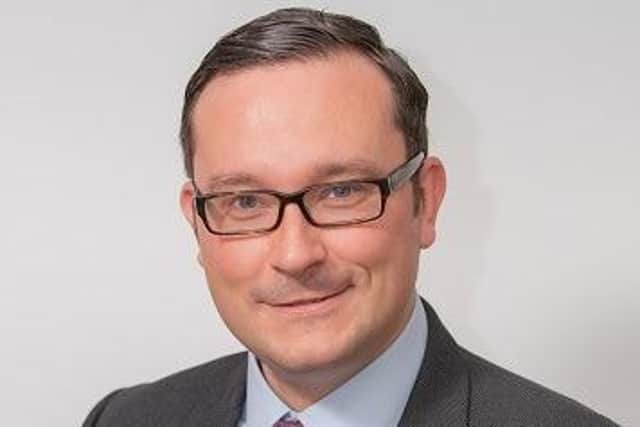Time for action as Rugby council faces up to soaring cost of energy, salaries and more


A pay deal has been worked out for council staff so strike action is not on the cards at the town hall and bosses believe they have time to rejig their calculations before finally setting the budget for 2023-24 – with measures that include a 10.1 per cent increase in some of its fees and charges.
An update to the council’s cabinet meeting next week shows the shift in the impact of inflation – leaping from a prediction of £0.753 million earlier in 2022, to £2.765 million now.
Advertisement
Hide AdAdvertisement
Hide AdCouncillors will hear this will be tackled through existing budgets where possible, as it addresses contractual increases likely to be £537,000 more than previously expected, plus the cost of gas going up an extra £312,000 and electricity an extra £161,000. The predictions for those latter two had been for increases of just £10,000 and £26,000 respectively.
Salaries are identified in the papers going before cabinet as the biggest of all inflationary pressures. This shows they will cost £1.02m more in 2023-24 than the £652,000 budgeted for salary increases. The report says staff received a £1,925 increase for the current financial year, an average of 6-7 per cent across the whole council.
But at the same time as the council faces these shifts, the government’s autumn statement has provided some good news, with continuation of the New Homes Bonus providing an extra income of around £1 million, with a further £1.075 million from the government’s ‘three per cent guarantee’ fund, which ensures councils have a minimum increase of spending power of three per cent.
The statement also provided confirmation the council will be able to retain around £6 million in business rates growth.
Advertisement
Hide AdAdvertisement
Hide AdThe cabinet report sets out a number of potential cuts and assumes an average increase in its share of Band D Council Tax of £5 per year, along with those increases in fees and charges set at the September inflation rate of 10.1 per cent.
Next week’s report is a financial update and the actual budget for the year ahead will be decided by councillors at their meeting in late February 2023.
Council leader Cllr Seb Lowe said: “Our residents and businesses will be well aware of the impact of inflation on their own finances, and these increases will also have a significant effect on the council’s budget.
“Nevertheless, the government’s autumn statement has now provided us with more certainty.
Advertisement
Hide AdAdvertisement
Hide Ad“This council has a strong track record of prudent financial management. Whilst the council’s cabinet will note the updated financial position presented in this report, we will be sure to consider future services and the impact on our residents as the council prepares to set its budget next month.”
The cabinet meeting takes place on Monday, January 9, at 6pm in the council chamber at the town hall. The agenda and reports are available now on the council’s website.